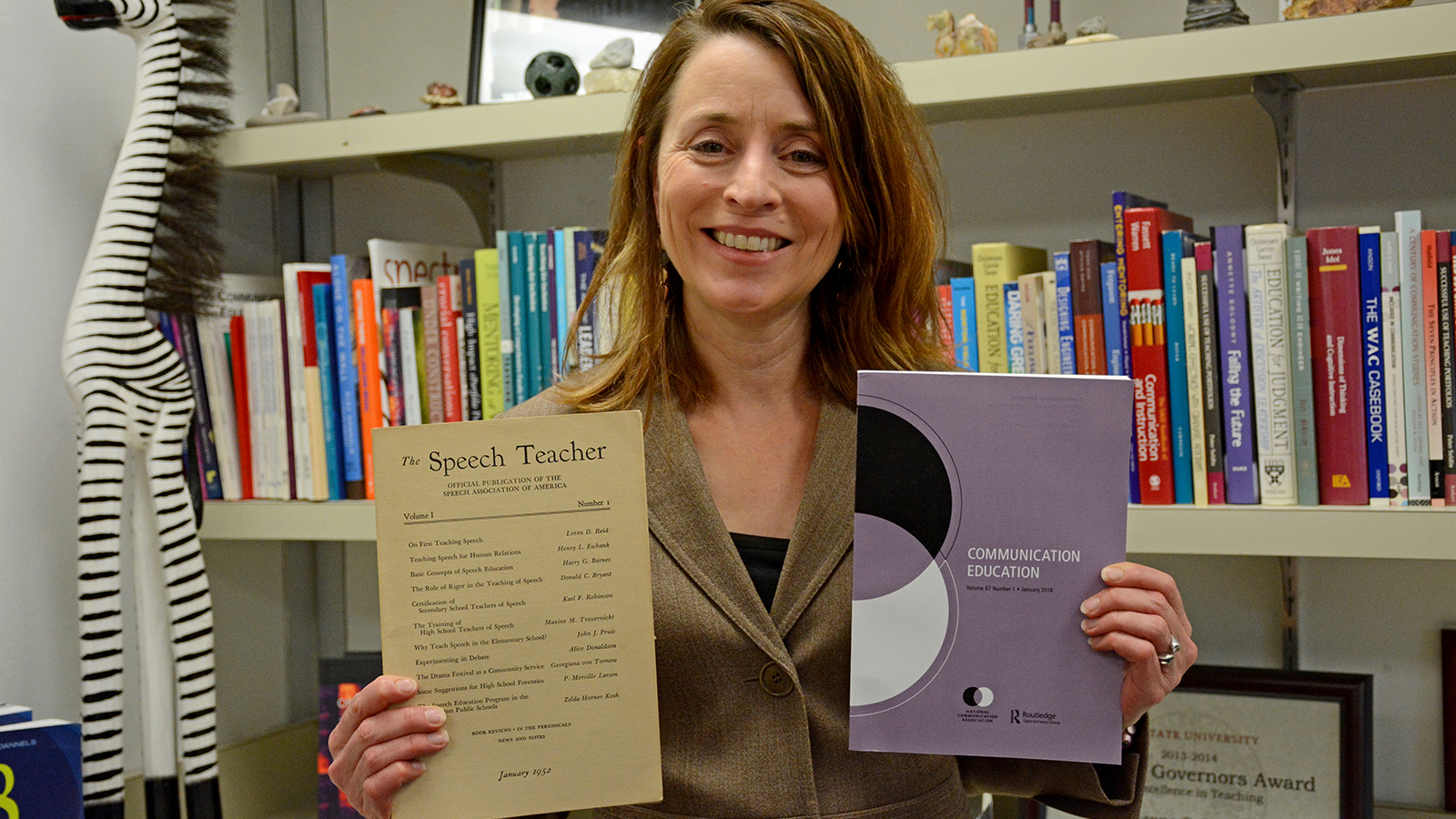Awe, Fear and Honor: Dannels Named Editor of Premier Communication Journal

Deanna Dannels is many things: marathon runner; Star Wars geek; mom; dog lover; professor of communication; associate dean for academic affairs in NC State’s College of Humanities and Social Sciences.
Add to that list her newest role: editor of the journal Communication Education, a leading publication of the National Communication Association. The quarterly academic journal has been published since 1952. Referenced and revered by teachers, academics, practitioners and researchers, it covers the gamut of communication-related scholarship, perspectives, trends and questions challenging multiple educational contexts across the nation.
As the wall-length shelf in her office attests, Dannels has accumulated every issue of the journal, including those published before she was even born.
“I’ve wanted to edit this journal for my entire career,” Dannels writes in her first “Editor’s Introduction” (December 2017). It was the first journal she submitted an article to, as a master’s student, and the first to send her a rejection. She has served on the editorial board for years, and as a consulting editor and as a guest editor.
During her tenure, Dannels wants to foster some big conversations “above and beyond the baseline of theoretical and methodological rigor.” In her words, here are some of Dannels’ commitments:
- Interrogating wicked problems in education: Wicked problems (Rittel & Weber, 1973) are societal problems that are complex and situationally unique in formation; lacking in linear explanations; difficult or impossible to solve with testable and finite solutions; and contagious in that any potential solution spawns other wicked problems. The term “wicked” is not meant to equate to evil, but rather to illustrate their resistance to resolution. We have a wealth of scholarly expertise to bring to bear on the wicked problems of education and I want our voices to be heard, within and outside the discipline.
- Challenging the imagination: We continue to produce high quality scholarship that shapes the field in new and innovative ways. I think there is value in asking the question: if we were to do things differently (pedagogically, theoretically, methodologically), what might that look like? Which historical pillars can we release? What new ideas should we pursue? What curiosities can we push a bit further? I want scholars to think big and wide about what could be, in addition to what is.
- Making our work matter: Our work should matter: to the teachers walking into my daughter’s 9th grade classroom, to the graduate teaching assistants walking into their first classroom, to the professors walking into their last classroom before retirement. Our work should matter to administrators mentoring new faculty or graduate students, to K-12 teachers working in after-school programs, and to engaged scholars providing training to learners in the community. It won’t just magically matter, though. The burden is on us to make the argument about why it does and for whom it can.
Dannels will edit the journal for the next three years, and says the role fills her “with awe and fear and honor.”
“I care deeply about this journal, all it provides practitioners, and all it stands for,” she says. “I do not come lightly to these blank pages.”
- Categories:


